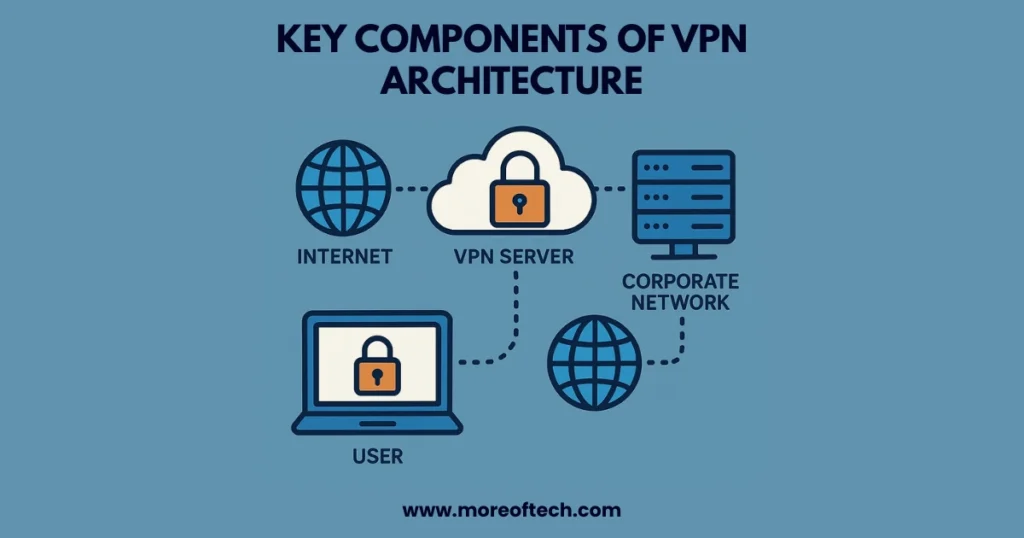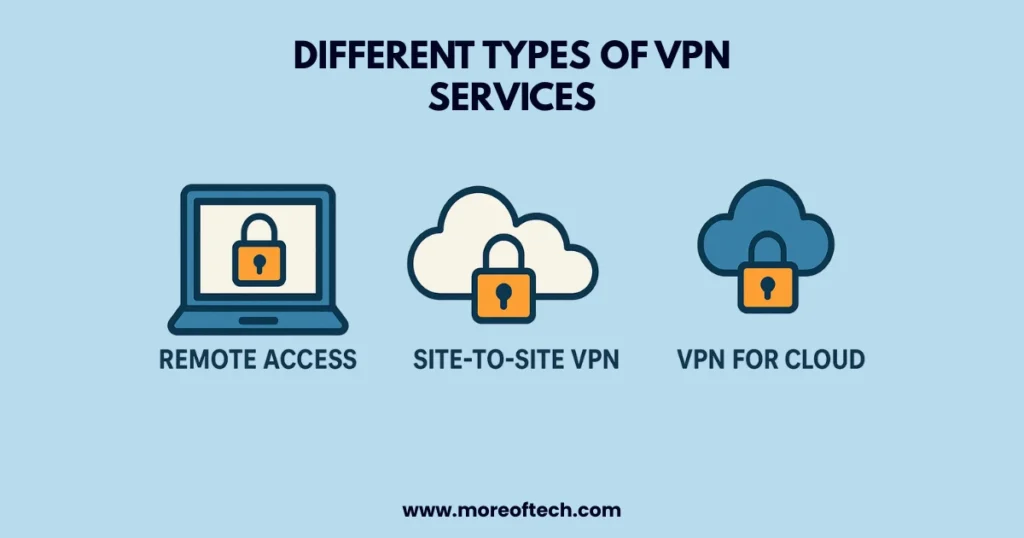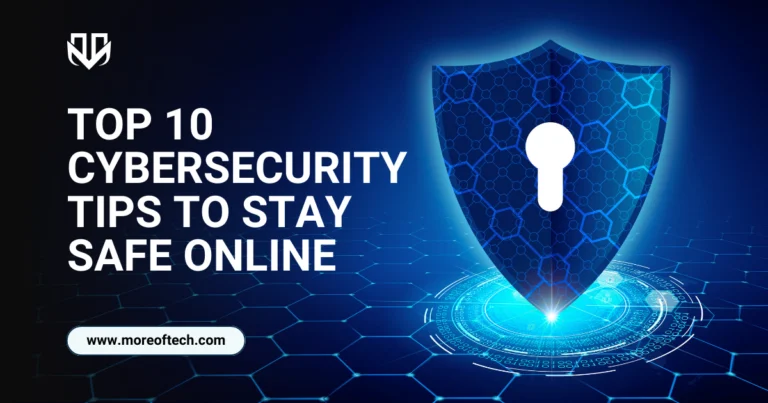VPNs Explained: How They Protect Your Privacy
Online privacy is a big deal today. VPNs act as strong protectors of your digital life. They keep you safe from cyber threats and tracking.
Every day, over 2,200 cyberattacks happen. So, keeping your online presence safe is a must.
VPNs make your internet use safe and private. They use strong encryption to hide your data from hackers and trackers. Your IP address is hidden, making it hard for anyone to follow your online steps.
Our lives are all connected to the internet now. This makes online privacy even more important. Top VPNs let you connect many devices and have lots of servers. They keep you safe whether you’re working, streaming, or just browsing.
VPNs are key to keeping your digital life safe today. They’re not just tools; they’re your digital guardians in a world that’s more connected than ever.
Table of Contents
The Growing Need for Online Privacy Protection
In today’s digital world, keeping your online privacy safe is more important than ever. Cyber threats are changing fast, making your personal info a big risk. People are looking for strong ways to protect their digital lives.
Alarming Cybersecurity Statistics
Recent numbers show how vulnerable we are online. Here are some shocking facts:
- 43% of US adults now use VPNs to protect their online activity
- 47% specifically use VPNs to keep their internet interactions private
- 50% of millennials and Gen Z report regular VPN usage
Digital Privacy Threats Landscape
There are many dangers to your online presence, including:
- Unsecured public Wi-Fi networks
- Aggressive online tracking
- Potential data breaches
- Targeted advertising
“Privacy is not something that I’m merely entitled to, it’s an absolute prerequisite.” – Marlon Brando
Evolution of Privacy Protection Tools
VPN technology has become a key player in online safety. These tools offer everything from basic encryption to advanced privacy features. They are crucial for anyone wanting to stay anonymous online.
| VPN Usage Category | Percentage of Users |
|---|---|
| Online Privacy Protection | 47% |
| Accessing Restricted Content | 17% |
| Streaming Service Cost Savings | 19% |
Protecting your digital identity is no longer optional—it’s a necessity in our interconnected world.
What Are VPNs and How Do They Work
A Virtual Private Network (VPN) is like a digital bodyguard. It creates secure connections that hide your online activities. When you use a VPN, it protects your personal info from cyber threats.
VPNs hide your IP address by sending your internet traffic through a remote server. This involves several steps:
- Encrypting your data before sending it
- Connecting you to secure servers
- Keeping your location secret
- Keeping your online identity safe
The tech behind VPNs is advanced. About 31% of internet users worldwide use VPNs now. This shows more people care about their online privacy. VPNs make a secure tunnel for your online chats, keeping hackers and others from spying on you.
There are different VPN protocols, each with its own security level. Protocols like OpenVPN and WireGuard offer strong protection. They use AES-256 encryption, making your data unreadable to anyone trying to intercept it.
By 2025, the VPN market is expected to hit about $77 billion. This shows how much we value keeping our online activities private.
The Core Functions of VPN Technology
Virtual Private Networks (VPNs) protect your online privacy with advanced strategies. They create secure channels for your internet use. This changes how you interact with the web.
Data Encryption Process
VPNs use strong encryption to hide your internet data. This turns your data into unreadable code. The main encryption methods are:
- Transport Layer Security (TLS)
- Internet Protocol Security (IPsec)
- Advanced Encryption Standard (AES) with 128-bit or 256-bit key lengths
IP Address Masking
IP masking is a key privacy feature. It hides your device’s location. When you use a VPN, your data goes through remote servers, hiding your IP address. This has many benefits:
- It stops websites from tracking your location
- It lowers the chance of online tracking
- It lets you access content blocked in your area
Secure Tunneling Protocol
Secure tunneling makes a safe path for your data. Protocols like OpenVPN and WireGuard protect your online activities. They keep your information safe from others.
By using these core functions, VPNs make your online life safer. They offer strong data protection and better digital privacy.
Key Components of VPN Architecture

VPN architecture is key to secure networks, offering strong privacy protection. It uses many important parts to make sure your online activities are safe. These parts work together to create secure, encrypted connections.
The main parts of VPNs include:
- VPN Clients: Software on your devices
- VPN Servers: Central points for network traffic
- Encryption Protocols: Ways to scramble data
- Authentication Systems: How users get access
VPNs have different architectures for different needs. Remote access VPNs let users connect securely. Site-to-site VPNs connect whole networks. This helps organizations keep their networks safe, no matter where they are.
Today’s VPNs use various setups, like:
- Client-server models
- Gateway-to-gateway links
- Router-to-router networks
- Web-based VPNs
Knowing about these setups helps you pick the right VPN. Whether you work from home or need network protection for your business, VPNs have flexible options. They help keep your digital world safe and private.
Essential Security Features of Modern VPNs
Understanding the key security features of modern VPNs is crucial for online privacy. The internet is filled with new threats every day. A VPN with strong security can greatly protect your digital world.
Encryption Standards: Your Digital Shield
Encryption is the core of internet security. AES-256 encryption is the top choice for keeping your online activities safe. It’s so strong that hackers find it hard to get into your data.
- AES-256 bit encryption provides maximum security
- Recommended protocols include OpenVPN and WireGuard
- Strong encryption prevents unauthorized data access
Kill Switch: Your Privacy Guardian
A kill switch is a must-have for keeping your privacy safe. It kicks in when your VPN connection fails. This stops your internet from connecting, so your data stays safe.
| Feature | Protection Level | Importance |
|---|---|---|
| Kill Switch | High | Prevents IP address leaks |
| Automatic Disconnection | Immediate | Blocks potential data breaches |
DNS Leak Protection: Maintaining Anonymity
DNS leak protection keeps your browsing private. Without it, your internet provider could see where you’re going online. Modern VPNs send all DNS queries through secure tunnels, keeping you anonymous.
- Prevents ISPs from tracking browsing history
- Encrypts all DNS request transmissions
- Adds an extra layer of internet security
Different Types of VPN Services

Virtual private networks (VPNs) are designed for different needs. They help protect your online privacy and allow secure access from anywhere. Knowing the types can help you pick the best one for your needs.
People looking for privacy often choose personal VPNs. These services encrypt your data and hide your IP address. This keeps your online activities private on all your devices.
- Personal VPNs: Ideal for individual privacy protection
- Remote access VPNs: Enable secure connections for distributed workforces
- Site-to-site VPNs: Connect multiple business locations securely
- SSL VPNs: Web-based secure connections
Businesses use remote access VPNs to keep their networks safe. These VPNs let employees work from anywhere. They check who’s accessing the network and keep data safe from hackers.
| VPN Type | Primary Use | Key Features |
|---|---|---|
| Personal VPN | Individual Privacy | Anonymity, Global Server Access |
| Remote Access VPN | Corporate Connectivity | Secure Network Access, User Authentication |
| Site-to-Site VPN | Interconnected Branches | Multi-location Network Integration |
When picking a VPN, think about server locations, encryption, and privacy features. These will help you find the right VPN for your needs.
Benefits of Using VPN Protection
Virtual Private Networks (VPNs) are key in today’s world. They help protect your digital life from cyber threats. Knowing how VPNs work can keep your online presence safe.
VPNs add many layers of security beyond basic protection. They make your internet use safer and more private. This is thanks to their data protection features.
Enhanced Online Privacy
Using a VPN boosts your online privacy. Here are some benefits:
- Hide your real IP address from trackers
- Stop your internet service provider from watching your browsing
- Less targeted ads and data collection
Secure Data Transmission
VPNs use encrypted connections. This makes your data safe from hackers, especially on public Wi-Fi.
“In 2023, 51% of internet users worldwide used a VPN to protect privacy on public Wi-Fi” – Global Cybersecurity Report
Access to Restricted Content
VPNs also let you access content blocked by location. You can:
- Watch streaming services from other countries
- Get around local internet blocks
- See content not available in your area
With top VPNs costing less than a coffee a month, it’s a small price for big security benefits.
Choosing the Right VPN Provider
When picking a VPN, look at several key factors. Top VPNs like NordVPN and Surfshark keep speed losses under 20%. They ensure your internet stays fast and reliable.
Privacy is also crucial. Look for VPNs with strict no-logging policies and strong encryption. NordVPN and Surfshark offer 100% phishing protection and cover over 100 countries.
Cost is important too. Surfshark and Private Internet Access have great deals starting at $40-$48 a year. But, ExpressVPN costs around $139 for top features like unlimited devices and global servers.
Choose a VPN that fits your needs. Think about speed, privacy, server locations, and cost. Make sure it supports your devices and keeps your internet fast and secure.



